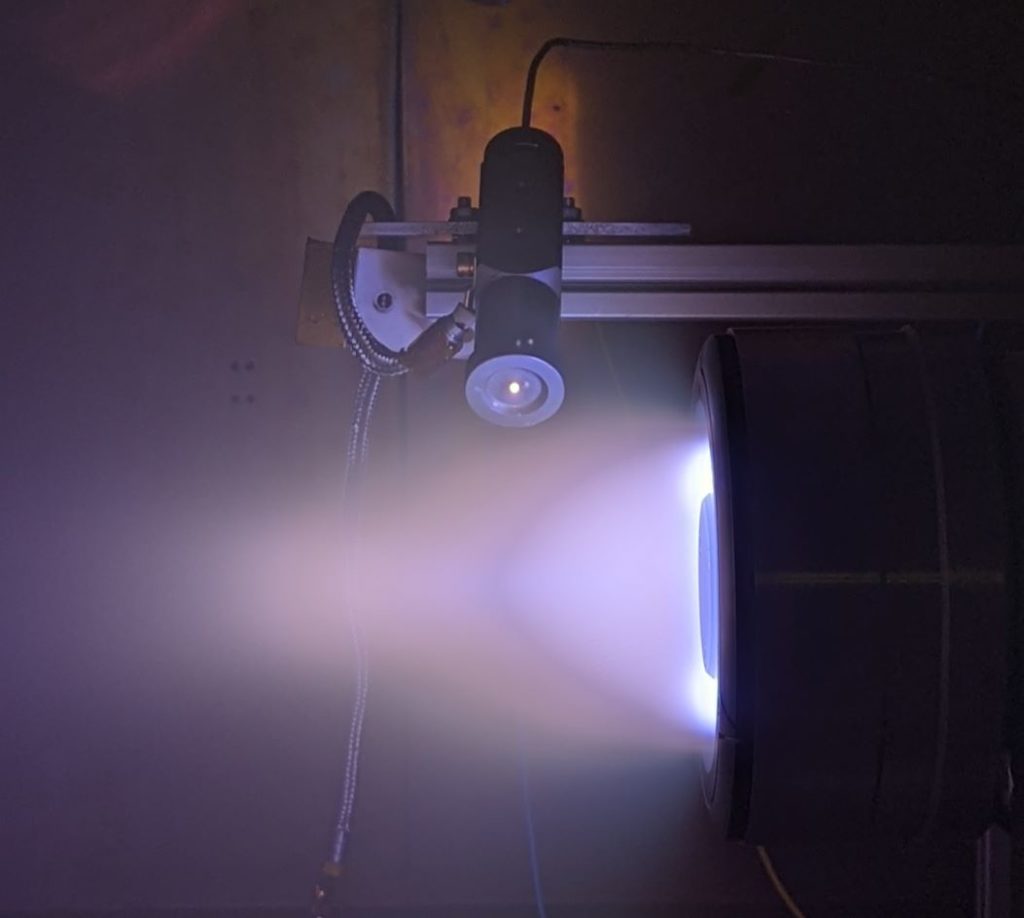A R&D partnership between the UK Space Agency the University of Michigan and companies in the US and UK aims to develop hall effect thrusters.
This UK Space Agency will develop a relationship with the leading university research center in Hall thrusters in the USA. the Plasma Dynamics and Electric Propulsion Lab at the University of Michigan along with Hall thruster companies Pulsar Fusion (UK) & Starlight Engines (US) and the University of Southampton (UK)
NASA has identified a strategic need over the next decade for electric propulsion, in particular in the field of high-power electric propulsion and propellants.

A Hall Effect Space Thruster, built in the UK by Pulsar Fusion undergoing testing at the University of Southampton (Image: Pulsar Fusion)
Hall thrusters are finding application in different spacecraft missions, including geostationary satellites and interplanetary missions. This includes robotic rendezvous missions such as those developed by Northrop Grumman and Astroscale, in particular for spacecraft de-orbiting, and interplanetary missions such as the Lunar Gateway Space Station and the NASA Psyche mission.
Until now, there has been no collaborations between the UK and USA on Hall thruster research. This new partnership. which is being funded from the first phase of the UK Space Agency’s (UKSA’s) £20 million International Bilateral Fund is the second project awarded to Pulsar Fusion by the UKSA.
Richard Dinan, CEO of Pulsar Fusion said, “As a manufacturer of space engines, there are regulatory challenges in being based in the UK, but England does have a fantastic talent pool and our scientists deserve to be at the forefront of these emerging technologies.
“This is another key US partnership for Pulsar – we continue to pursue best-in-class innovation, and this is particularly exciting given the global commercial interest in these engines. Following last month’s announcement of our work with Princeton Satellite Systems, we remain optimistic that companies like Pulsar can continue to advance our technologies whilst remaining in the UK with access to unparalleled scientific resources.”
Credit: Source link
